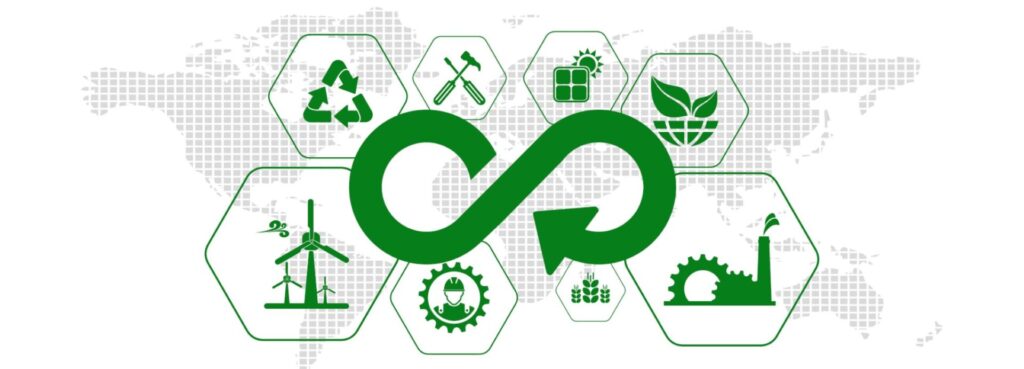Accelerate the transition from the use-and-throw culture to the use-and-throw culture. circular economy is essential to prevent the overrun of the planetary boundaries and limit the increase in global warming to 2°C, emphasizes World Economic Forum.
However, Megan Murdiewriter and editor of Circular Economy, details that the Circularity Gap Report 2023 shows a worrying trend, as circularity has fallen from 9.1% in the 2018 report to a meager 7.2%.
"This means that of the more than 100 billion tons of materials extracted from the planet each year, only 7.2% is reused in the global economy," he stresses.
The Circularity Gap Report 2023 divides countries into three different groups, taking into account their context and needs: build, grow and change.
The World Economic Forum highlights nine actions being taken, three by each group, that are helping to accelerate the transition to the circular economy and are examples of how material extraction can be reduced by up to one-third through reuse, repair and recycling.
Build
In this group are low-income countries that are home to 46% of the world's population, but have low material consumption and struggle to meet basic social needs. Developing countries live within the limits of the planet, but still need to build an economic system that meets the basic needs of their population.
- ColdHubs: solar-powered refrigeration
Nigerian company ColdHubs, a solar-powered post-harvest refrigeration-as-a-service solution, makes food waste a thing of the past and reduces emissions in the process.
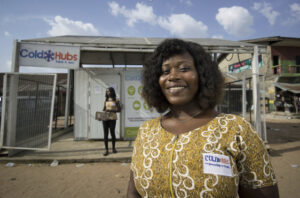
Created in 2015 by entrepreneur Nnaemeka Ikegwuonu, ColdHubs are one-square-meter storage units that keep food fresh for up to 21 days. In 2020, the 54 ColdHubs units prevented more than 42 000 tons of food from being wasted, equivalent to more than one million kilograms of CO2.
- Friendship Hospital, Bangladesh
A hospital in Bangladesh is causing a sensation and has been called "the best new building in the world". Located in the remote village of Shyamnagar, the Friendship Hospital was built with sustainable local materials and local craftsmen, with equal access to healthcare for vulnerable populations very much in mind.

The architects intentionally adapted to the surrounding river landscape by creating a canal that runs through the hospital facilities, providing natural cooling and separating inpatients from outpatients. Two water reservoirs located at either end of the canal store rainwater collected on site.
- Kathmandu electrified cabs
The air in Nepal's capital, Kathmandu, is heavily polluted by congested and poorly maintained roads, and lack of transport management. To combat this problem, the Safa Tempo, a battery-powered three-wheeled public transport vehicle, was introduced in Kathmandu in the mid-1990s.

In the 2000s, more than 600 of these electric vehicles occupied urban streets. Charger manufacturing, battery charging stations and operations created about 750 jobs, while 600 jobs were created for drivers.
Grow
This is where middle-income countries are located, which are rapidly industrializing and building infrastructure to lift their populations out of poverty and have a growing middle class, which consumes 51% of the materials.
- Shenzhen Urban Electric Mobility
Road transport contributed 86.8% of China's total carbon emissions in 2019 and the Chinese transport sector as a whole contributed 11% to all global carbon emissions. In 2017, Shenzhen became the first city in the world to electrify all buses to cut emissions, reduce noise pollution and improve air quality. The result was an estimated annual decrease of about 4.316 million tons of particulate pollutants.
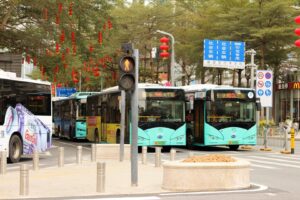
- The Thai start-up of a surprising superfood
Animal food production - from eggs and dairy to meat - has tripled in the last 50 years, putting immense pressure on several planetary boundaries. Global Bugs provides a solution with the help of an alternative protein made from crickets. The production of cricket powder is more cost-effective and less carbon-intensive than that of beef cattle, as well as having a higher nutritional value.
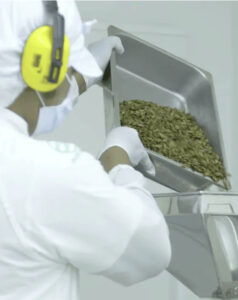
Considered a superfood, crickets are a rich source of healthy fats, vitamins, minerals and proteins that increase the nutritional value of foods, beverages, dietary supplements and pet foods.
- Brazilian cosmetics brand flips the script on deforestation
Brazil contributes 33,12% of all tropical deforestation, mainly due to industrial cattle ranching. Natura wants to change this situation. The organization produces cosmetics with ingredients sourced from the Amazon rainforest. However, Natura has an untraditional business model: it follows the "standing forest" philosophy, which advocates that a tree has much more value when standing than when felled. This philosophy has preserved almost 2 million hectares of rainforest and has channeled Natura's profits to local communities.

Change
In this group are the higher income countries that offer a high standard of living, but consume 31% of the world's materials. These countries have a long way to go to rethink their way of doing things and their responsibility to reduce material use and pollution, and to take responsibility for their own waste.
- Food waste technology bins in South Korea
The accumulation of waste on South Korean streets led to public protests and in 2005, food dumping was banned. Today, Seoul plans to use food waste for urban agriculture initiatives. The city has installed 6,000 garbage cans with instruments such as scales and radio frequency identification (RFID) technology to weigh food waste as it is deposited and charge residents according to usage.
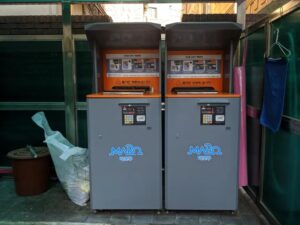
City officials claim that the RFID machines have helped reduce food waste in Seoul by almost 47,000 tons in six years.
- How the Netherlands became the bicycle capital of the world
The 1970s saw mass protests in the Netherlands against rising traffic fatalities and the demolition of historic areas to build highways. The energy crisis created a perfect storm that led the government to prioritize safe and clean mobility. With the construction of 20,000 kilometers of bicycle lanes, bicycle use became the new norm. Now, more than a quarter of all trips in the Netherlands are made by bicycle, and with 17 million inhabitants, the country is home to 23 million bicycles.
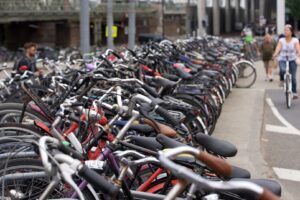
- France's Reparability Index for extending product service life
In a concerted effort to combat planned obsolescence, France has become the first European country to introduce a repair index for products such as smartphones, televisions, laptops and lawnmowers. The index, which is to be displayed near products in stores and online, will eventually cover more items and will also rate durability. Following in France's footsteps are the U.S. Right to Repair Act and the European Union's Sustainable Products Initiative.
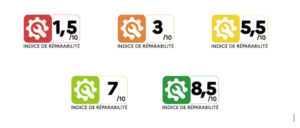
Source: World Economic Forum

